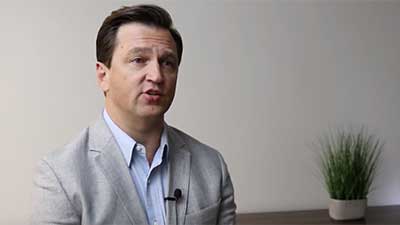Power of attorney grants the holder (the “agent”) to act on the behalf of another person (the “principal”), for the sake of their best interest. It is an important role when a person becomes incapacitated, or otherwise is unable to make legal, financial or health decisions on their own. A principal can grant as many, or as few, powers to an agent they want, and a power of attorney may be effective immediately or it may be a “springing power of attorney,” which becomes effective upon a certain act, like two doctors determining the principal is incapacitated.
This guide covers the basics, and provides free fillable forms to help you.
What is power of attorney?
Simply put, if you are given power of attorney, then you, as agent, are entitled and allowed by law to make decisions for the person who is giving you that power, the principal. This decision making power can encompass many things, or be limited to a specific issue. These decisions may cover medical decisions, financial decisions, or general legal decisions.
Do I need an estate planning attorney, or can I use a free fillable power of attorney form?
You do not need a lawyer to enact a power of attorney, and you can use a free fillable power of attorney form. However, you may consider an attorney for the following reasons:
- Complex situations
- Peace of mind
- Simplified process
If you choose to proceed without a lawyer, here are links to free fillable downloadable power of attorney forms and advanced healthcare directive forms:
Power of Attorney Forms – Sacramento County Public Law Library
eForms – Power of Attorney Form (California, Florida, Texas, and all states)
AARP – Advanced Healthcare Directive Form (California, Florida, Texas, and all states)
Here are some things to consider before completing and submitting this form:
- Both the principal and agent need to authorize and sign this form
- Depending on the powers granted, the form may need to be signed before a notary public
- Depending on the powers granted, if a notary public is not available, then two witnesses unrelated to the agent and principal involved in the agreement may be able to witness the form
How do I prove my power of attorney? What if it is contested?
Frequently, you may discover that your power of attorney is initially refused by a bank, investment firm, medical group, hospital, or other institution. This is normal. Many of these groups have their own protocols for processing and approving a power of attorney. For example, some institutions may require that you fill out their own specific power of attorney forms prior to allowing an agent from making any decisions on behalf of the principal.
In most cases, these additional forms may be all that is required. In more complicated situations, it may be worth consulting a trust and probate estate litigation attorney to help you through the process of proving the power of attorney. An attorney should be able to help elevate and resolve the situation with the institution.
What is revoking power of attorney?
To revoke a power of attorney simply means to end the agreement and the principal-agent relationship. Revoking power of attorney terminates the ability of the agent to make decisions on the behalf of the principal. For example, imagine that prior to a serious medical procedure, a power of attorney was given to an agent. Then, the medical procedure went well, and the patient returned to complete health. At that point, the patient may then revoke the power of attorney because the need no longer exists.
Only the principal needs to revoke a power of attorney. The agent does not need to approve the revocation. Unless there are specific revocation conditions contained in the power of attorney that must be followed, the principal need only execute a document stating that the power of attorney is revoked.
What are some advantages of durable power of attorney?
For example, if a person becomes incapacitated and can no longer make legal, medical, or financial decisions, then typically the person’s family would have to go to court to seek a conservatorship of the person (medical) or conservatorship of the estate (legal/financial). The court would appoint one or more persons to act as conservator, and they manage the decisions of the principal/conservatee. The conservatorship process can take a long time, cost a lot of money, and add needless stress to what is probably already a stressful situation. In a medical situation, the time involved may require emergency court action, which adds additional stress and costs.
So, giving a durable power of attorney to a family member or other trusted person can help avoide these situations, reduce costs, save time, and make a long list of stressful situations that much simpler.
Can I name more than one power of attorney?
Yes. You can name any number of agents to make any specific type of decision on your behalf. Financial, real property, estate planning, tax, medical, guardianship, etc. To keep the duties of each specific and clear, it may become advantageous to speak with an estate planning attorney with experience in handling these situations.
How do I choose a power of attorney?
Choosing a power of attorney is a personal decision. Here are some general questions to help you decide:
- Do they live near you? Location is a factor when in-person decisions are required at hospitals, etc.
- Do you trust them? Obviously, you should consider them a trusted advisor and decision maker.
- Are they available? A person who is frequently traveling or out of reach may be unavailable to make decisions.
I have a living trust. Do I also need a power of attorney?
Yes. A living trust does not cover property management outside of the trust, nor does a trust cover personal matters such as healthcare decisions. While the successor trustee of your trust may be able to make financial decisions concerning assets held by your trust, the trustee has no authorization to make decisions regarding assets and properties not named in the trust. Trusts also do not cover healthcare matters, so trustees cannot handle these issues without being named as an agent under a power of attorney/advanced healthcare directive.
Power of attorney fillable forms list for free download:
Power of Attorney Forms – Sacramento County Public Law Library
eForms – Power of Attorney Form (California, Texas, and all states)
AARP – Advanced Healthcare Directive Form (California, Texas, and all states)
California Franchise Tax Board – Power of Attorney
Have questions about durable power of attorney in California?
At RMO, we help protect clients like you everyday, and the consultation is always free. Give us a call anytime: (424) 320-9440, or email: [email protected]



